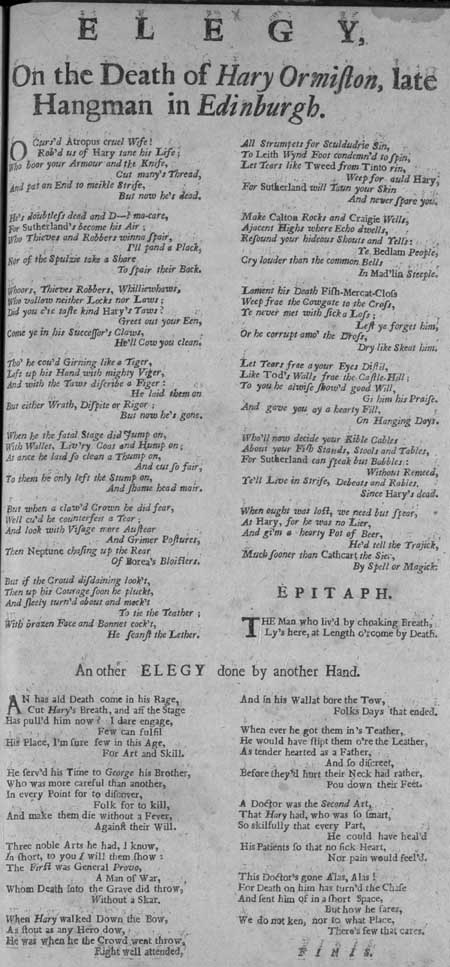Commentary
Verse 1: 'O Curs'd Atropus cruel Wife ; / Rob'd us of Hary tane his Life ; / Who boor your Armour and the Knife, / Cut many's Thread, / And pat an End to meikle Strife, / But now he's dead.' A different elegy, 'by another hand' is given below. It begins 'An has ald Death come in his Rage, / Cut Hary's Breath, and aff the Stage'. There are no publication details given. Probably written around 1720, the tone of the first elegy is respectful, although the second author seems to have had a more personal relationship with the executioner. The National Library of Scotland also holds broadsides concerning the next two Edinburgh hangmen, Sutherland and John Daglees or Dalgleish. Sutherland, mentioned in this piece, was banished in 1722. Dalgleish died around 1730. Early ballads were dramatic or humorous narrative songs derived from folk culture that predated printing. Originally perpetuated by word of mouth, many ballads survive because they were recorded on broadsides. Musical notation was rarely printed, as tunes were usually established favourites. The term 'ballad' eventually applied more broadly to any kind of topical or popular verse.
View Transcription | Download PDF Facsimile
|
 |
Probable period of publication:
1718-1722 shelfmark: Ry.III.c.36(120)
 View larger image
View larger image
|


